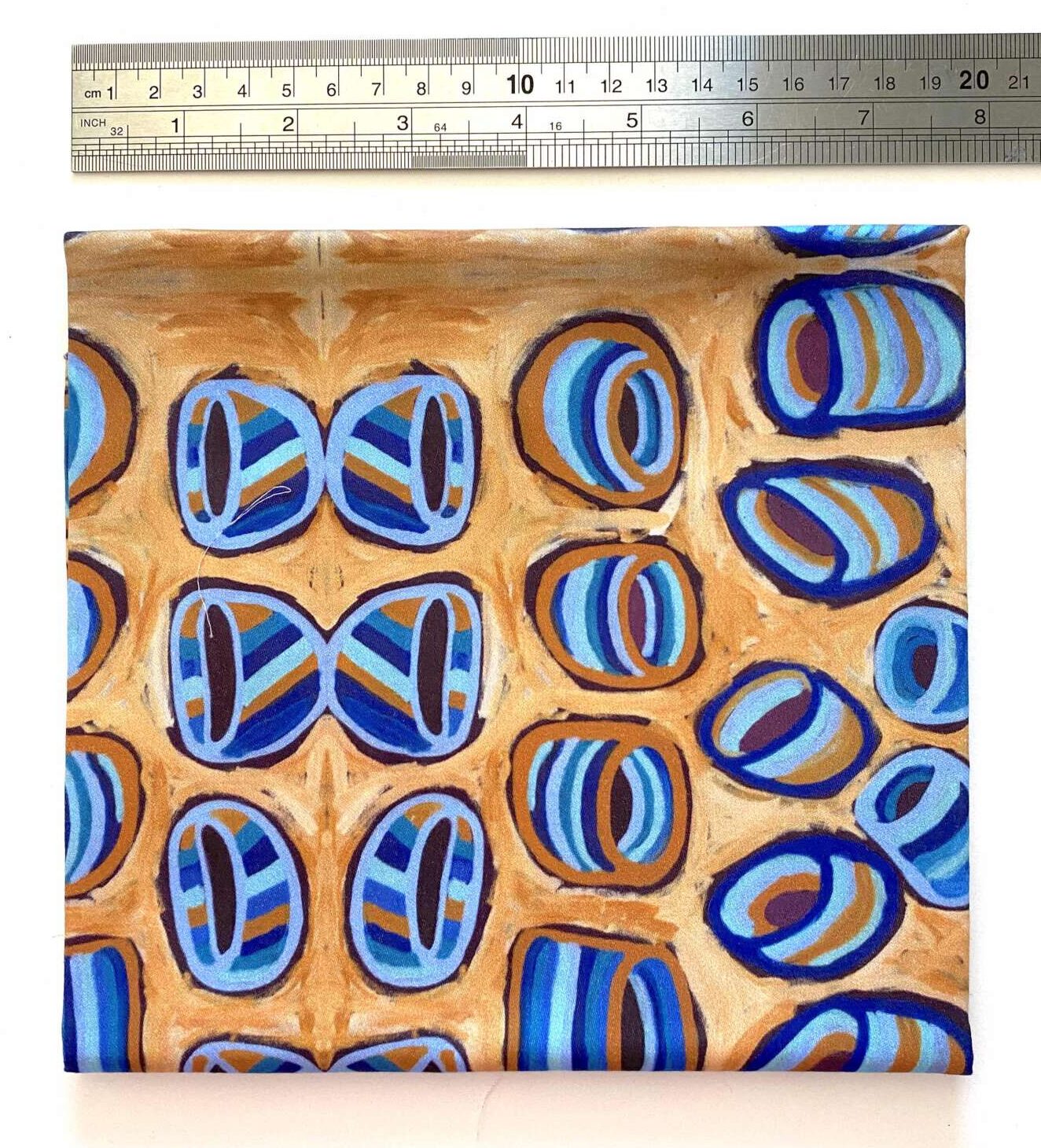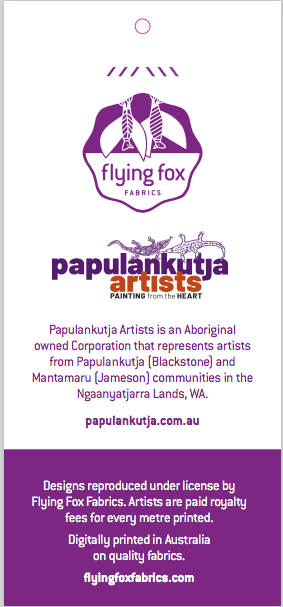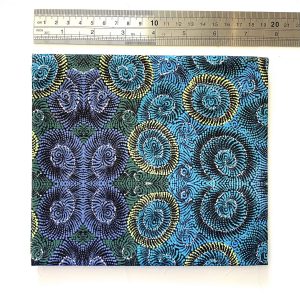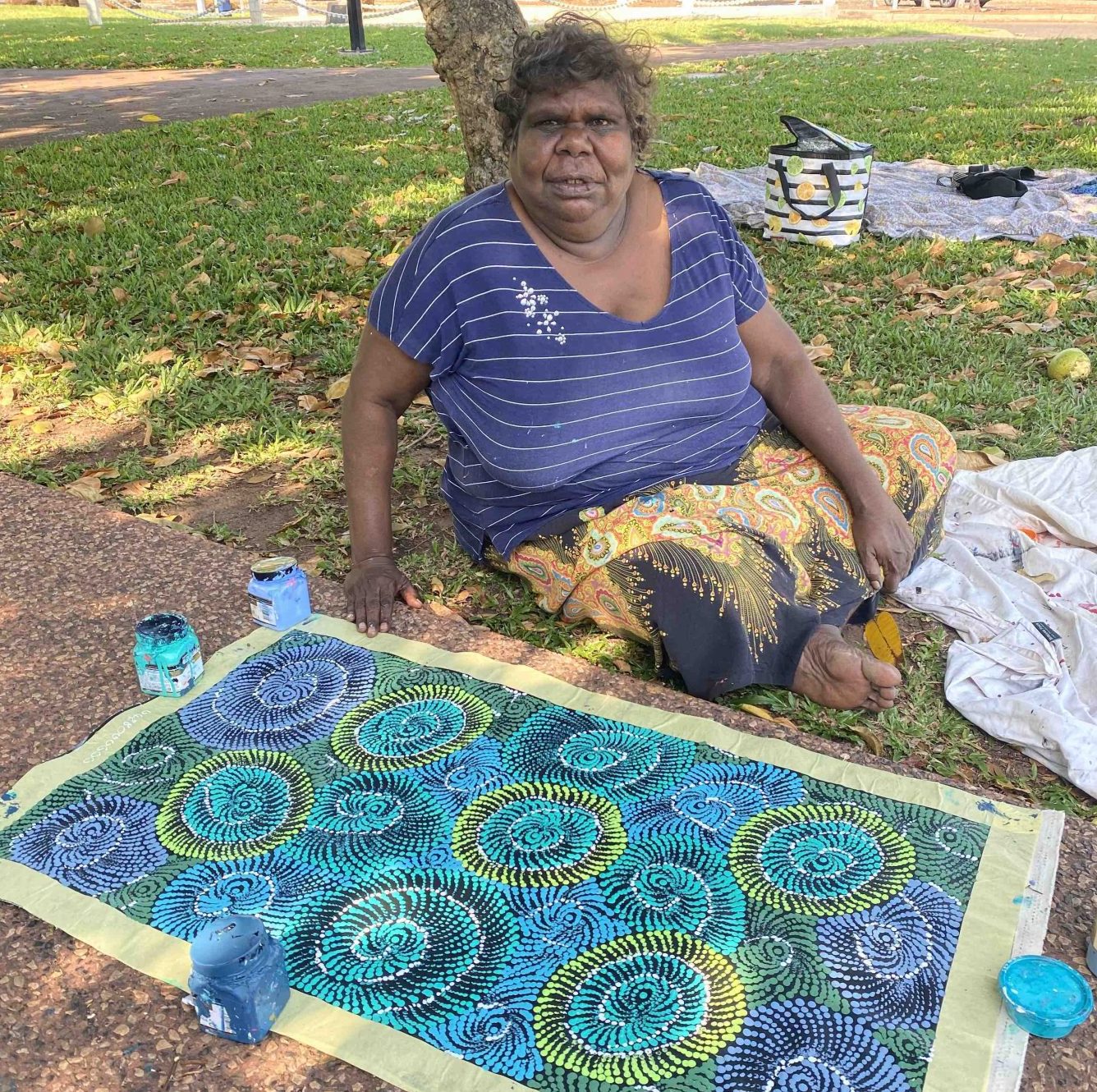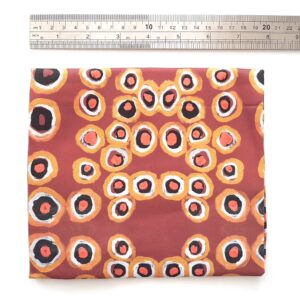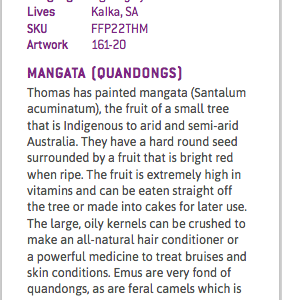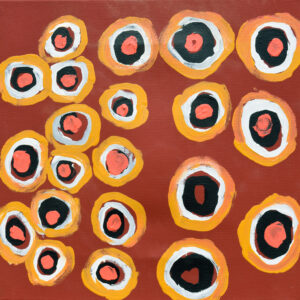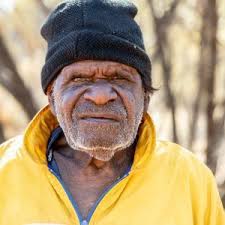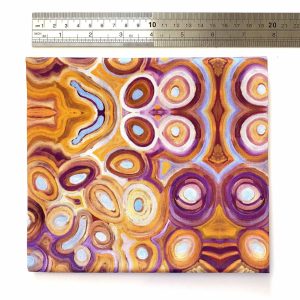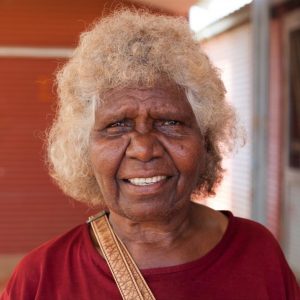Description
- Composition: Classic Cotton – organic (more info at bottom)
- Dimensions: 50 x 70 cm (19.7 x 27.5 inches)
- Weight: 140 gsm
- The artist is paid royalties for every metre printed
- Produced by Flying Fox Fabrics under license from Papulankutja Artists
Title: Baskets
Narelle’s playful painting was inspired by the baskets the Ngaanyatjarra women make for Tjanpi Weavers. Basket weaving was introduced to women in the NPY Lands in the 1990s as an alternative handicraft income source. They use local tjanpi (grass), a renewable resourced, as the base material for the structure. The weaving is done with raffia and wool to bind the grass. Sometimes the baskets are decorated with found objects such as emu feathers.
Weaving activity has evolved over time. The ladies of the region, including Narelle, have become famed for creating major collaborative artworks from tjanpi. These include a NATSIA prize winning Toyota and figurative works depicting ancestors from the Tjukurpa including Kungkarrangkalpa, the Seven Sisters.
About the artist: Narelle was born in the bush in 1953 near Wanarn at a place where there are two rockholes together called Tjulurn and Mungakatu. She grew up out bush before moving to Warburton and attending the Warburton Mission primary school. Ethel attended high school first at Norseman Mission and later at Esperance Mission School. After her school education, she worked in various places throughout Western Australia as a domes c and childcare worker.
Narelle moved from Mantamaru (Jameson) to Papulankutja (Blackstone) in the 1990s with her two daughters and became involved in NYP Women’s Council activities. ‘I didn’t work for NPY but we used to go to the meetings somewhere, like in SA, NT or WA.’ She was one of the first staff at the Women’s Centre that was set up by NYPWC to support women in the community and offered a place for them to come together and learn new skills. ‘We used to just go ahead and do it ourselves. At that time I was running the Women’s Centre, I used to hold the key, every day, five days a week. The women were so many, they liked coming and doing anything they can do.’ She was responsible for catering, cooking and supporting the Centre’s Health and Aged Care (HAC) activities.
Papulankutja Artists started at the Women’s Centre growing out of art and craft activities including sewing, batik, purnu and then painting on canvas. This is where Ethel first started to paint (1993). Over time she has also been involved in sewing, making spinifex paper and creating limited edition prints.
There were many happy and productive years for her in Papulankutja before a family tragedy occurred in the community in 2003 and she lost a daughter. Heartbroken she relocated to Mantamaru.
Ethel now works as an arts worker for Papulankutja Artists continuing to paint and supporting the artists who live in Mantamaru, from an office within the women’s centre. Ethel is recognised throughout the Nyaanyatjara Lands and beyond as a pioneer of women’s and arts activities in the region.
Papulankutja Artists is a community-based, not-for-profit Aboriginal Corporation governed by a committee of elected members.
It evolved out of the Women’s Centre where painting had been encouraged as an activity for both men and women since the mid 1980s. With the Aboriginal art market taking off it became necessary to establish a legal framework to protect the artists and their entitlements. Papulankutja Artists was born in 2003 and a year later registered as an Aboriginal Corporation with the members governing the art centre. After five year struggling to find a home Papulankutja Artists moved into a purpose built art centre in 2009. The art centre also works with artists in Mantamaru (Jameson), a community 75kms to the west.
The fabric: Classic Cotton is made from organic yarn and woven in a satin finish. The fabric has a smooth surface with a sheen across it and a bright white point making it an excellent fabric for printing. Classic Cotton is a versatile fabric that produces a soft hand feel and gentle drape. Perfect for all types of clothing, accessories and selected soft furnishings.
Printed by: Next State Print in Melbourne
Fabric care instructions:
Gentle cold/ warm wash. Do not bleach, warm rinse well, do not tumble dry, warm iron, dry cleanable (P).

